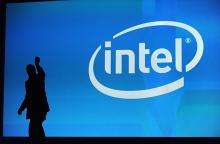Intel's truce with Nvidia shows industry's shifts

Intel Corp.'s decision to pay Nvidia Corp. $1.5 billion for the right to its patents highlights the seismic shifts the semiconductor industry is undergoing.
The licensing deal announced Monday comes as both companies are adapting to the new rules of the consumer electronics world, as mobile devices are changing the way chips are made.
Intel, dominant in PCs, wants in to smart phones and tablets, and needs better graphics technologies as high-definition video proliferates across the devices. Nvidia, a leader in graphics, wants to challenge Intel on its home turf: the processors that act as the "brains" of computers.
The rise of the new class of mobile computers has set Intel and Nvidia on a collision course, the results of which were on display in the terms of the settlement between the two companies.
Intel will pay the $1.5 billion over the next five years. Nvidia said the settlement is expected to increase its annual net income by 29 cents per share for the life of the contract. The companies' existing contract was set to expire March 31.
Intel is essentially paying to end a fight it started.
When it sued Nvidia in 2009, the fight was over "chipsets" - specifically, whether Nvidia had the right to keep making the type of chip, which uses an Intel design, without buying a new license from Intel. Nvidia countersued, claiming it was covered by a deal the companies struck in 2004.
Chipsets help a computer's processor talk to the rest of the machine, and at one point both Intel and Nvidia made them.
The prospect of not being able to use Intel's technology took such a toll that Nvidia left the chipset business in 2009. Yet the lawsuits lingered.
That set the stage for Monday's settlement, which shows how far from chipsets the argument extended.
On the surface, the deal highlights how important Intel thinks Nvidia's graphics technologies are going to be. Several analysts interviewed by The Associated Press said they were surprised by the amount of money Intel was willing to pay.
But the subtext of what wasn't part of the deal is also compelling.
Most notably, Nvidia won't get the right to Intel's main technology - its processors and other technologies built on the so-called x86 design, the usual design for PC processors.
That exclusion is significant because it reinforces that Nvidia's plans to enter the processor market won't involve a pact with Intel. Technology companies, even and especially rivals, often license each others' technologies to expand their overall markets or to avoid antitrust troubles.
Nvidia has long been rumored to be trying to dip its toes in the processor market. The fact that Nvidia didn't get the rights to Intel's processor designs reinforces that Nvidia plans to take a different path to take on Intel. That path involves licensing a different design that is already popular for phones and other mobile devices.
Intel's earlier mobile chips have been criticized as too power-hungry for phones and tablets, but its latest models appear to address those complaints.
The design Nvidia will use instead comes from a UK-based company called ARM Holdings, which has emerged as a dangerous opponent for Intel and its smaller rival, Advanced Micro Devices Inc., in mobile devices.
In a separate announcement, AMD on Monday ousted its CEO of two-and-a-half years, Dirk Meyer, in a surprising resignation driven by the belief on AMD's board that the company's growth prospects would be better under a new leader.
The widespread adoption of ARM designs, which are now being embraced by Microsoft Corp. for future versions of its Windows software, is changing the landscape of the computing industry, straining old relationships and forcing chip makers to forge new paths.
"This is a big inflection point in the marketplace," said Chris Caso, a semiconductor analyst with Susquehanna Financial Group. "And as we look back a couple years from now, the landscape of the PC market is going to change dramatically. And I'm not sure if ARM is going to be the winner, but there's a lot of disruption that's going to happen, and generally that's probably an overall negative for Intel, just because they dominate the market so much right now."
The settlement doesn't change much for consumers, who generally don't pay attention to what kind of chipset their PCs use, and because Nvidia has already exited that market. Also, Nvidia graphics chips will still work with Intel's processors - Nvidia just isn't making the technology that connects the two any longer.
Where consumers may see a difference is when Nvidia starts rolling out its own processors, and consumers have to wade through marketing pitches that touch on the intricacies of chip design.
The settlement gives Nvidia a big cushion to help fund those efforts as well as brace for any decline in the market for separate graphics chips, which can add hundreds of dollars to the price of a PC. Intel and AMD are racing to cram better graphics technologies directly into their PC processors. Their aim is to reduce the need for separate graphics chips for most mainstream users.
Intel is no stranger to settling with rivals.
In 2009 Intel agreed to pay AMD $1.25 billion to settle AMD's antitrust allegations. AMD's complaints about Intel's behavior instigated government investigations around the world, including a record $1.45 billion antitrust fine in Europe that Intel is contesting.
Nvidia's stock rose 5.7 percent, or $1.17, to $21.80 in extended trading Monday, after the agreement was announced. Intel stock slipped a penny to $20.68.
©2010 The Associated Press. All rights reserved. This material may not be published, broadcast, rewritten or redistributed.

















